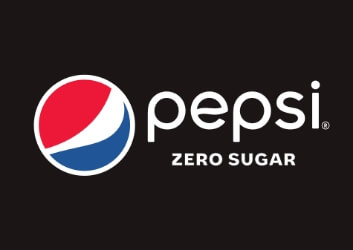
Sparenberg: Banika Overlooked, but Never Under-Appreciated
February 8, 2022
by John Sparenberg
If one was in search of a phrase to sum up the career of former Hershey Bear Cory Banika, a fitting one would be “sometimes overlooked, but never under-appreciated.”
His career, partially defined by his undrafted status, was one filled with numerous injuries that were incurred due to his physical, contentious, and-depending on if he was on your side- controversial style of play, which oftentimes led to suspensions of varying lengths.
But in the end, the things that stand out the most from his time on the ice are the championships and the respect that he earned along the way from management and his teammates. Both groups witnessed firsthand the sacrifice he put into doing his job to his utmost ability, raging into battle with reckless abandon, regardless of the size of the battle.
A native of Oshawa, Banika was fortunate enough to play most of his junior hockey with Oshawa Generals. He attended their games from the age of four until he donned their colors as a teen.
As a fan of the Generals, Banika bore witness to heartbreak firsthand. He was in the crowd at the Oshawa Civic Auditorium when they lost to the Medicine Hat Tigers, who received goals from future Bears Dale Kushner and Guy Phillips in the finals of the 1987 Memorial Cup playoffs.
Fast forward three years, and Banika was playing for the Generals in the 1990 Memorial Cup at Copps Coliseum in Hamilton, Ontario, and serving in an integral role that was a combination of antagonist and opportunist, a pair of attributes that served him well throughout his career.
On the grand stage of the tournament, which dates back to 1919 and presented a unique opportunity to erase the relatively recent painful memory of the Tigers’ taming of the Generals and live out a “childhood dream” of attaining a championship for his hometown club, Banika excelled.
In game one of the round-robin event, he netted a pair of goals in a lopsided Generals victory, and he followed that multi-goal effort with single strikes in Oshawa’s final two outings. In the penultimate game, the Generals prevailed in a grueling battle in double overtime against the Kitchener Rangers to advance to the finals. In the final game of the tournament, also against the Rangers and also ultimately decided in double overtime, defenseman Bill Armstrong, with whom Banika has had a long-lasting professional relationship which continues to this day, dealt the dagger that ravaged the Rangers’ title hopes, but brought the Memorial Cup back to Canada’s Motor City for the first time since 1944.
The following season, Banika hit the roads, literally, as he attempted to get a foothold on a pro career, venturing to the shores of Virginia where he dipped his toes into the paid ranks with the Hampton Roads Admirals of the ECHL. However, after only 15-games with John Brophy’s bunch, he returned to the OHL with the Cornwall Royals where he netted 16-goals and added 17 helpers for Marc Crawford’s club in 31 contests.
He did get his first AHL experience when Crawford, nicknamed “Crow '' and now the head coach of the St. John’s Leafs of the AHL, beckoned him for a two-game stint with his club, during which Cory connected for his first AHL tally. The Brantford Smoke of the Colonial Hockey League would become Banika’s primary hockey residence in the subsequent two seasons.
It was in Brantford that Banika banked his first professional championship and also where he first encountered Graeme Bonar, a 3rd round pick of the Montreal Canadiens in the 1984 NHL Entry Draft, who still often bumps into Banika at OHL rinks.
“I first met Cory in 1992 with the Smoke,” said Bonar, who in addition to being a teammate of Banika, often engaged his buddy in “burger battles” which consisted of detailed discussions of where to get the best burgers and eating contests between Banika and the much bigger Bonar. “Honestly, I wasn’t aware of him prior to that; I just know that when I got there, he was serving a 20-game suspension. Cory usually had a black eye, either from a fight, running the opposing goalie, or some other on-ice encounter. (Nearly thirty years later) I can still see that picture in my head of Cory with Eric Lindros at the Memorial Cup press conference, and yes, Cory was sporting a black eye.”
The 1993-94 season found Banika still scratching and clawing as he looked to establish himself as an AHL regular, and to that extent, the campaign had mixed results. Yes, he played nine games in the loop, including two with the Bears, but the majority of his time was once again spent toiling in the low minors with Johnstown Chiefs of the ECHL and Brantford.
Finally in his fourth season, fate intervened, and the door to the long-awaited legitimate opportunity to find regular employment in the AHL swung wide open for Banika, who landed in Cornwall with Bob Hartley. Hartley had been an assistant the previous season with the club when they eliminated the Bears in seven games at the HersheyPark Arena and was now in his rookie season as an AHL head coach.
“It was purely luck that I ended up in Cornwall. The guy that was responsible for bringing me to the Oshawa Generals, Sherry Bassin, was the assistant General Manager of the Quebec Nordiques, and Cornwall just needed players for their exhibition games. Sherry called me and said we need some players and are you interested in coming down for a tryout, and I said sure, I’ll be there in four hours.”
With Hartley now running the Aces’ bench and the Hershey-Cornwall rivalry at a red-hot temperature, the Cornwall crew once again eliminated the Bears, this time in Cornwall, and depending on who or what you believe, Banika may have pulled a “slight of hand” trick to carve out the decisive win for his club.
The incident in question occurred early in the second period, and is one that Banika said with a wink “I can neither confirm nor deny.” With the Bears already down a goal, Jason Bowen was given a penalty for high-sticking Banika, who retreated to the dressing room. Then, after a discussion among the officials, referee Brad Watson summoned Banika, who by now was bleeding, which led to a five-minute major being assessed to Bowen. It’s still open for debate whether Banika was already cut when he originally left the ice, or whether he perhaps, somehow, began bleeding during his time being out of sight, but one thing is certain, the Aces scored on the ensuing power-play, with Pascal Trepanier potting what would eventually turn out to be the series-winning goal.
Fast forward to the 1996-97 season, and the Aces’ parent club, the Quebec Nordiques had relocated to Colorado and become the Colorado Avalanche, and in a subsequent move, the Avs shifted their AHL affiliate from Cornwall to Hershey. This meant that Banika, who said he enjoyed the “Hershey heckling” when he came into Hershey in the role of a villain with the Aces, would now be embraced by the same folks in due time, and that included the medical staff.
“I still remember my first day in Hershey. I saw Dr. (Kevin) Black come in and he gives me kind of a look, and although I can’t remember his exact words, they were something like this, “Well, I guess I’m going to have to get to like you now.”
Hershey’s General Manager at the time of the shuffle was Jay Feaster, who, while serving in the same capacity when Banika was an Ace, watched him raise havoc and probably his blood pressure against his club.
“We did have quite a history playing against him,” chuckled Feaster, 20-plus years later, when discussing the signing of Banika. “Certainly the experience of playing against him when he was with Cornwall was a part of it, as was Bob Hartley, who knew him and coached him there. I relied heavily on Bob’s recommendation.”
The 96-97 season, which ultimately culminated with the Bears’ capturing the 8th Calder Cup in the franchise’s history, was filed with many highs and lows in the regular season for Banika, and many ups and downs for the club in general in the postseason.
Limited to only 43-games in the 96-97 regular season due to the combination of suspensions, healthy scratches, and multiple concussions, including one that had him out of the lineup for a dozen games late in the season, Banika returned for the final two games of the campaign and netted a goal in each.
From an outsiders’ perspective, there would undoubtedly be questions about Banika’s availability for the postseason-if he would be playing and his ability to contribute to the run. History proves he was not only readily available, appearing in all 23-games, but he also played a pivotal role by stirring the pot and lighting the lamp.
“I wasn’t surprised at all,” Banika said instantly, when asked whether he expected to be in the lineup every night. “With Bob, you did exactly what was expected, and it didn’t matter who you were. The expectations were that you showed up to work ready to compete and play hard. If you did, there were never any issues.”
“I remember Bob called me into his office in my first season with him in Cornwall. He told me there were going to be games that I had to sit out. He had to play the Nordiques’ young prospects, but he told me to just play my game and don’t worry about it. I understood that from my perspective, and I also understood what the organization and Bob were trying to do for the prospects.”
“The same thing happened when I went to Hershey, Bob took me aside and told me there would be some nights where he would have to play the young guys and I wouldn’t play, but he told me to make sure I was ready because come playoff time, I wouldn’t be sitting out as long as I continued to play my game. Bob’s philosophy was the regular season is the time of the season where the prospects play, sometimes only because they have to play, but come playoff time, Bob coached to win. I knew I’d be playing because of the way Bob’s teams were constructed and the style of play he liked to play.”
Exponentially in those 1997 Calder Cup Playoffs, the intensity rose along with the responsibility with which Hartley entrusted Banika.
In round one against the Kentucky Thoroughblades, he was quietly effective, keeping the Kentucky crew honest with his tenacious play while also netting the final goal of the series, an insurance marker that put the T-Blades out to pasture.
In round two against the Philadelphia Phantoms, Banika failed to score, but he was a central part of the series in a physical capacity by grinding away throughout the series, including game two in Philly. In that fistic Philly, "How you doin'?" when there were no friends, only foes, with 350 PIM’s being doled out in a game that featured 12 ejections, including two goaltenders. Of course Banika, never far from a fray, was a featured participant in a second period sequence that saw fights break out all across the ice. Banika, along with his dance partner, Aris Brimanis, opened the fight card. Ironically, both combatants were not banished from the contest, presumably because the other tussles were deemed to be secondary in nature.
The Phantoms gave the Bears all they could handle in the series that eventually stretched to seven games, with the Bears clinching the series in the City of Brotherly Love.
“I can still remember going into Philly for game seven. Then, I still remember very clearly how excited and happy we were leaving there that night after the win. From Bob (Hartley), to Bob McGill, to Jay Feaster, and of course us players.”
Next up was the Springfield Falcons, coached by former Bears defenseman, Kevin McCarthy. The Falcons, who entered the series with eight days of rest compared to four for the Bears, convincingly captured game one in Hershey, and were well on their way to win number two carrying a 3-0 lead early in the third period before a pair of goals by Banika led to a five-goal frame that grounded the Falcons and evened the series. Then in game three in Springfield, in a similar situation, a Banika goal in third period moved the Bears to within a goal of the Falcons, who were ultimately felled in overtime.
After disposing of Springfield, one more obstacle needed to be cleared in order for Banika and the Bears to capture the cup, as they faced the Hamilton Bulldogs, featuring Dennis Bonvie.
The Bears bested the Bulldogs in games one and two in Chocolatetown before the series shifted to Hamilton and the Copps Coliseum, the same venue in which Banika had captured the Memorial Cup as an amateur.
Down 1-0 in game three thanks to a Steve Lingren goal that was assisted by Banika, the Dogs dug down deep, and powered by a pair of assists from Bonvie, scratched their way to a 2-1 win.
However, the Bears, behind Banika’s dogged determination, came back to capture game four with Banika assisting on the empty-net goal. Game 5 featured Banika once again wrapping up the series scoring as the Bears captured a 4-1 win and their 8th Calder Cup Championship.
“I really enjoyed being Cory’s coach,” said Hartley. He always had an unbelievable compete level, very reliable in all aspects of the game, and he was a major part of that team.”
After overcoming some pretty serious post-concussions, Banika is now in his second year as an amateur scout with the Phoenix Coyotes under Armstrong, now the GM of the “Desert Dogs,”, and the man who was instrumental in him landing his first pro scouting job with the St. Louis Blues.
So what does Banika look for in a potential Coyote? Is it a player like himself, who played in over 400 professional games on nothing but determination? Perhaps a prospect with a golden touch around the net or a booming shot? The answer, it seems, is a combination thereof.
“I wasn’t a skilled player, but I always appreciated the skilled players. The best players, yes, they have the skill, but they also have the will and the will to compete. It’s not about body checks or fights or things like that, because that is getting out of the game. It’s more about the ability of these skilled players to go to the dirty areas, or the high-traffic areas. Are they willing to go to the net? I think it’s players like that that ultimately make winning teams,” said Banika, who went on to win another championship with the UHL’s Muskegon Fury after leaving Hershey. “You can have all the skill you want, but if you don’t have the will, you won’t have a very successful team.”
These are indeed words of wisdom from a guy who knows that of which he speaks as evidenced by the major success he had with limited skills, but unlimited heart and determination.
“Banny was, and still is, a competitor,” said Bonar. “He always puts the team first and would always be there for his brothers. If you had 20 Bannys on your team, you would win every year.”
If one was in search of a phrase to sum up the career of former Hershey Bear Cory Banika, a fitting one would be “sometimes overlooked, but never under-appreciated.”
His career, partially defined by his undrafted status, was one filled with numerous injuries that were incurred due to his physical, contentious, and-depending on if he was on your side- controversial style of play, which oftentimes led to suspensions of varying lengths.
But in the end, the things that stand out the most from his time on the ice are the championships and the respect that he earned along the way from management and his teammates. Both groups witnessed firsthand the sacrifice he put into doing his job to his utmost ability, raging into battle with reckless abandon, regardless of the size of the battle.
A native of Oshawa, Banika was fortunate enough to play most of his junior hockey with Oshawa Generals. He attended their games from the age of four until he donned their colors as a teen.
As a fan of the Generals, Banika bore witness to heartbreak firsthand. He was in the crowd at the Oshawa Civic Auditorium when they lost to the Medicine Hat Tigers, who received goals from future Bears Dale Kushner and Guy Phillips in the finals of the 1987 Memorial Cup playoffs.
Fast forward three years, and Banika was playing for the Generals in the 1990 Memorial Cup at Copps Coliseum in Hamilton, Ontario, and serving in an integral role that was a combination of antagonist and opportunist, a pair of attributes that served him well throughout his career.
On the grand stage of the tournament, which dates back to 1919 and presented a unique opportunity to erase the relatively recent painful memory of the Tigers’ taming of the Generals and live out a “childhood dream” of attaining a championship for his hometown club, Banika excelled.
In game one of the round-robin event, he netted a pair of goals in a lopsided Generals victory, and he followed that multi-goal effort with single strikes in Oshawa’s final two outings. In the penultimate game, the Generals prevailed in a grueling battle in double overtime against the Kitchener Rangers to advance to the finals. In the final game of the tournament, also against the Rangers and also ultimately decided in double overtime, defenseman Bill Armstrong, with whom Banika has had a long-lasting professional relationship which continues to this day, dealt the dagger that ravaged the Rangers’ title hopes, but brought the Memorial Cup back to Canada’s Motor City for the first time since 1944.
The following season, Banika hit the roads, literally, as he attempted to get a foothold on a pro career, venturing to the shores of Virginia where he dipped his toes into the paid ranks with the Hampton Roads Admirals of the ECHL. However, after only 15-games with John Brophy’s bunch, he returned to the OHL with the Cornwall Royals where he netted 16-goals and added 17 helpers for Marc Crawford’s club in 31 contests.
He did get his first AHL experience when Crawford, nicknamed “Crow '' and now the head coach of the St. John’s Leafs of the AHL, beckoned him for a two-game stint with his club, during which Cory connected for his first AHL tally. The Brantford Smoke of the Colonial Hockey League would become Banika’s primary hockey residence in the subsequent two seasons.
It was in Brantford that Banika banked his first professional championship and also where he first encountered Graeme Bonar, a 3rd round pick of the Montreal Canadiens in the 1984 NHL Entry Draft, who still often bumps into Banika at OHL rinks.
“I first met Cory in 1992 with the Smoke,” said Bonar, who in addition to being a teammate of Banika, often engaged his buddy in “burger battles” which consisted of detailed discussions of where to get the best burgers and eating contests between Banika and the much bigger Bonar. “Honestly, I wasn’t aware of him prior to that; I just know that when I got there, he was serving a 20-game suspension. Cory usually had a black eye, either from a fight, running the opposing goalie, or some other on-ice encounter. (Nearly thirty years later) I can still see that picture in my head of Cory with Eric Lindros at the Memorial Cup press conference, and yes, Cory was sporting a black eye.”
The 1993-94 season found Banika still scratching and clawing as he looked to establish himself as an AHL regular, and to that extent, the campaign had mixed results. Yes, he played nine games in the loop, including two with the Bears, but the majority of his time was once again spent toiling in the low minors with Johnstown Chiefs of the ECHL and Brantford.
Finally in his fourth season, fate intervened, and the door to the long-awaited legitimate opportunity to find regular employment in the AHL swung wide open for Banika, who landed in Cornwall with Bob Hartley. Hartley had been an assistant the previous season with the club when they eliminated the Bears in seven games at the HersheyPark Arena and was now in his rookie season as an AHL head coach.
“It was purely luck that I ended up in Cornwall. The guy that was responsible for bringing me to the Oshawa Generals, Sherry Bassin, was the assistant General Manager of the Quebec Nordiques, and Cornwall just needed players for their exhibition games. Sherry called me and said we need some players and are you interested in coming down for a tryout, and I said sure, I’ll be there in four hours.”
With Hartley now running the Aces’ bench and the Hershey-Cornwall rivalry at a red-hot temperature, the Cornwall crew once again eliminated the Bears, this time in Cornwall, and depending on who or what you believe, Banika may have pulled a “slight of hand” trick to carve out the decisive win for his club.
The incident in question occurred early in the second period, and is one that Banika said with a wink “I can neither confirm nor deny.” With the Bears already down a goal, Jason Bowen was given a penalty for high-sticking Banika, who retreated to the dressing room. Then, after a discussion among the officials, referee Brad Watson summoned Banika, who by now was bleeding, which led to a five-minute major being assessed to Bowen. It’s still open for debate whether Banika was already cut when he originally left the ice, or whether he perhaps, somehow, began bleeding during his time being out of sight, but one thing is certain, the Aces scored on the ensuing power-play, with Pascal Trepanier potting what would eventually turn out to be the series-winning goal.
Fast forward to the 1996-97 season, and the Aces’ parent club, the Quebec Nordiques had relocated to Colorado and become the Colorado Avalanche, and in a subsequent move, the Avs shifted their AHL affiliate from Cornwall to Hershey. This meant that Banika, who said he enjoyed the “Hershey heckling” when he came into Hershey in the role of a villain with the Aces, would now be embraced by the same folks in due time, and that included the medical staff.
“I still remember my first day in Hershey. I saw Dr. (Kevin) Black come in and he gives me kind of a look, and although I can’t remember his exact words, they were something like this, “Well, I guess I’m going to have to get to like you now.”
Hershey’s General Manager at the time of the shuffle was Jay Feaster, who, while serving in the same capacity when Banika was an Ace, watched him raise havoc and probably his blood pressure against his club.
“We did have quite a history playing against him,” chuckled Feaster, 20-plus years later, when discussing the signing of Banika. “Certainly the experience of playing against him when he was with Cornwall was a part of it, as was Bob Hartley, who knew him and coached him there. I relied heavily on Bob’s recommendation.”
The 96-97 season, which ultimately culminated with the Bears’ capturing the 8th Calder Cup in the franchise’s history, was filed with many highs and lows in the regular season for Banika, and many ups and downs for the club in general in the postseason.
Limited to only 43-games in the 96-97 regular season due to the combination of suspensions, healthy scratches, and multiple concussions, including one that had him out of the lineup for a dozen games late in the season, Banika returned for the final two games of the campaign and netted a goal in each.
From an outsiders’ perspective, there would undoubtedly be questions about Banika’s availability for the postseason-if he would be playing and his ability to contribute to the run. History proves he was not only readily available, appearing in all 23-games, but he also played a pivotal role by stirring the pot and lighting the lamp.
“I wasn’t surprised at all,” Banika said instantly, when asked whether he expected to be in the lineup every night. “With Bob, you did exactly what was expected, and it didn’t matter who you were. The expectations were that you showed up to work ready to compete and play hard. If you did, there were never any issues.”
“I remember Bob called me into his office in my first season with him in Cornwall. He told me there were going to be games that I had to sit out. He had to play the Nordiques’ young prospects, but he told me to just play my game and don’t worry about it. I understood that from my perspective, and I also understood what the organization and Bob were trying to do for the prospects.”
“The same thing happened when I went to Hershey, Bob took me aside and told me there would be some nights where he would have to play the young guys and I wouldn’t play, but he told me to make sure I was ready because come playoff time, I wouldn’t be sitting out as long as I continued to play my game. Bob’s philosophy was the regular season is the time of the season where the prospects play, sometimes only because they have to play, but come playoff time, Bob coached to win. I knew I’d be playing because of the way Bob’s teams were constructed and the style of play he liked to play.”
Exponentially in those 1997 Calder Cup Playoffs, the intensity rose along with the responsibility with which Hartley entrusted Banika.
In round one against the Kentucky Thoroughblades, he was quietly effective, keeping the Kentucky crew honest with his tenacious play while also netting the final goal of the series, an insurance marker that put the T-Blades out to pasture.
In round two against the Philadelphia Phantoms, Banika failed to score, but he was a central part of the series in a physical capacity by grinding away throughout the series, including game two in Philly. In that fistic Philly, "How you doin'?" when there were no friends, only foes, with 350 PIM’s being doled out in a game that featured 12 ejections, including two goaltenders. Of course Banika, never far from a fray, was a featured participant in a second period sequence that saw fights break out all across the ice. Banika, along with his dance partner, Aris Brimanis, opened the fight card. Ironically, both combatants were not banished from the contest, presumably because the other tussles were deemed to be secondary in nature.
The Phantoms gave the Bears all they could handle in the series that eventually stretched to seven games, with the Bears clinching the series in the City of Brotherly Love.
“I can still remember going into Philly for game seven. Then, I still remember very clearly how excited and happy we were leaving there that night after the win. From Bob (Hartley), to Bob McGill, to Jay Feaster, and of course us players.”
Next up was the Springfield Falcons, coached by former Bears defenseman, Kevin McCarthy. The Falcons, who entered the series with eight days of rest compared to four for the Bears, convincingly captured game one in Hershey, and were well on their way to win number two carrying a 3-0 lead early in the third period before a pair of goals by Banika led to a five-goal frame that grounded the Falcons and evened the series. Then in game three in Springfield, in a similar situation, a Banika goal in third period moved the Bears to within a goal of the Falcons, who were ultimately felled in overtime.
After disposing of Springfield, one more obstacle needed to be cleared in order for Banika and the Bears to capture the cup, as they faced the Hamilton Bulldogs, featuring Dennis Bonvie.
The Bears bested the Bulldogs in games one and two in Chocolatetown before the series shifted to Hamilton and the Copps Coliseum, the same venue in which Banika had captured the Memorial Cup as an amateur.
Down 1-0 in game three thanks to a Steve Lingren goal that was assisted by Banika, the Dogs dug down deep, and powered by a pair of assists from Bonvie, scratched their way to a 2-1 win.
However, the Bears, behind Banika’s dogged determination, came back to capture game four with Banika assisting on the empty-net goal. Game 5 featured Banika once again wrapping up the series scoring as the Bears captured a 4-1 win and their 8th Calder Cup Championship.
“I really enjoyed being Cory’s coach,” said Hartley. He always had an unbelievable compete level, very reliable in all aspects of the game, and he was a major part of that team.”
After overcoming some pretty serious post-concussions, Banika is now in his second year as an amateur scout with the Phoenix Coyotes under Armstrong, now the GM of the “Desert Dogs,”, and the man who was instrumental in him landing his first pro scouting job with the St. Louis Blues.
So what does Banika look for in a potential Coyote? Is it a player like himself, who played in over 400 professional games on nothing but determination? Perhaps a prospect with a golden touch around the net or a booming shot? The answer, it seems, is a combination thereof.
“I wasn’t a skilled player, but I always appreciated the skilled players. The best players, yes, they have the skill, but they also have the will and the will to compete. It’s not about body checks or fights or things like that, because that is getting out of the game. It’s more about the ability of these skilled players to go to the dirty areas, or the high-traffic areas. Are they willing to go to the net? I think it’s players like that that ultimately make winning teams,” said Banika, who went on to win another championship with the UHL’s Muskegon Fury after leaving Hershey. “You can have all the skill you want, but if you don’t have the will, you won’t have a very successful team.”
These are indeed words of wisdom from a guy who knows that of which he speaks as evidenced by the major success he had with limited skills, but unlimited heart and determination.
“Banny was, and still is, a competitor,” said Bonar. “He always puts the team first and would always be there for his brothers. If you had 20 Bannys on your team, you would win every year.”
Recent News
- Capitals Recall Brett Leason from Bears
- Weekly Release: Bears Host Monsters
- Eriks Matieko Named to Team Latvia for 2026 Winter Olympics
- Hershey Bears' 2026 Teddy Bear Toss Collects 81,796 Stuffed Animals
- Belpedio and Clarke Pace Bears to 5-2 Teddy Bear Toss Win Over IceHogs
- Practice Schedule for the Week of January 5, 2026
- GIANT Teddy Bear Toss Game Preview: Bears vs. IceHogs, 3 p.m.
- Bears Survive Hog-Wild 5-4 Win Over IceHogs
- Game Preview: Bears vs. IceHogs, 7 p.m.
- Bears Close 2025 with 3-0 Loss to Phantoms













